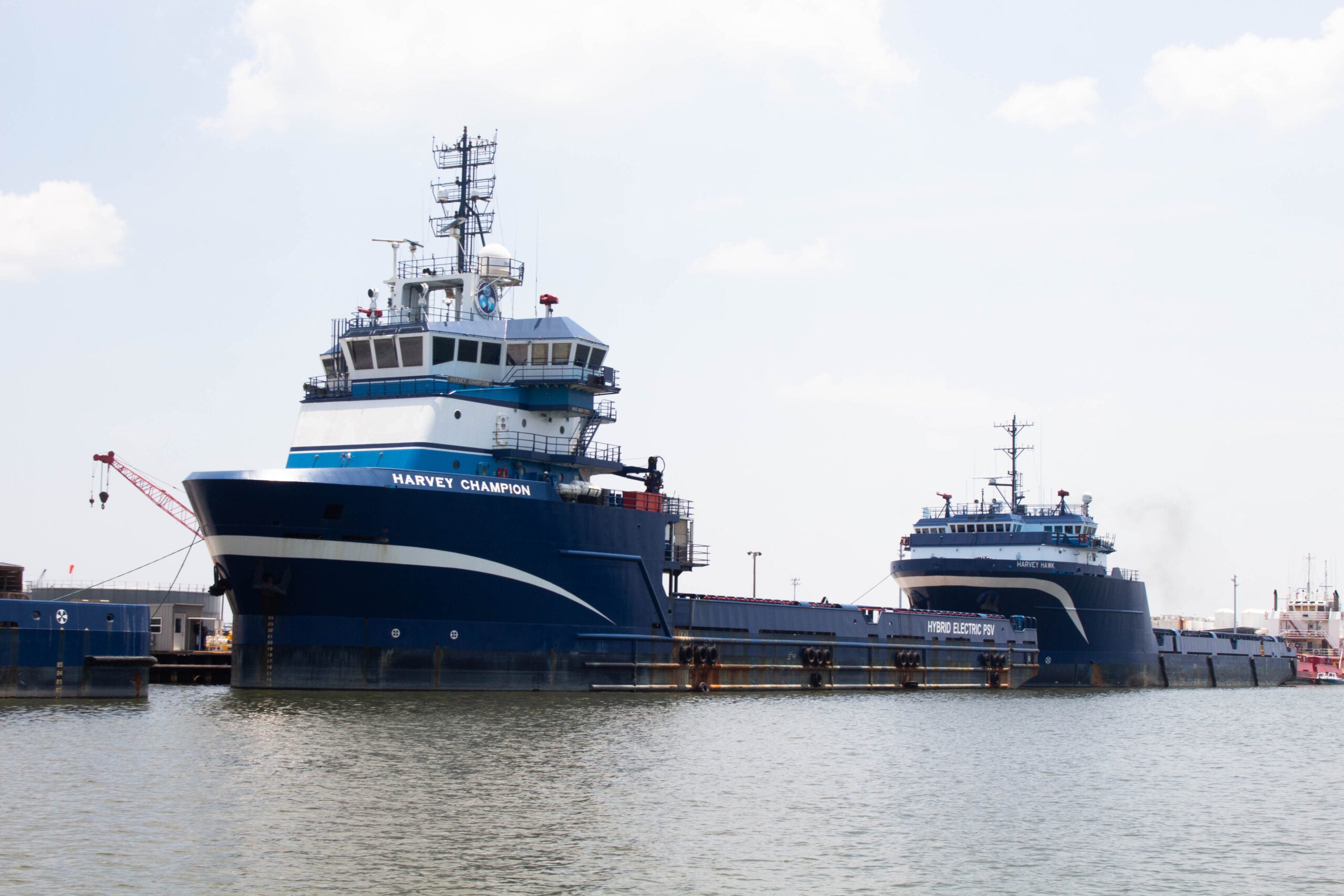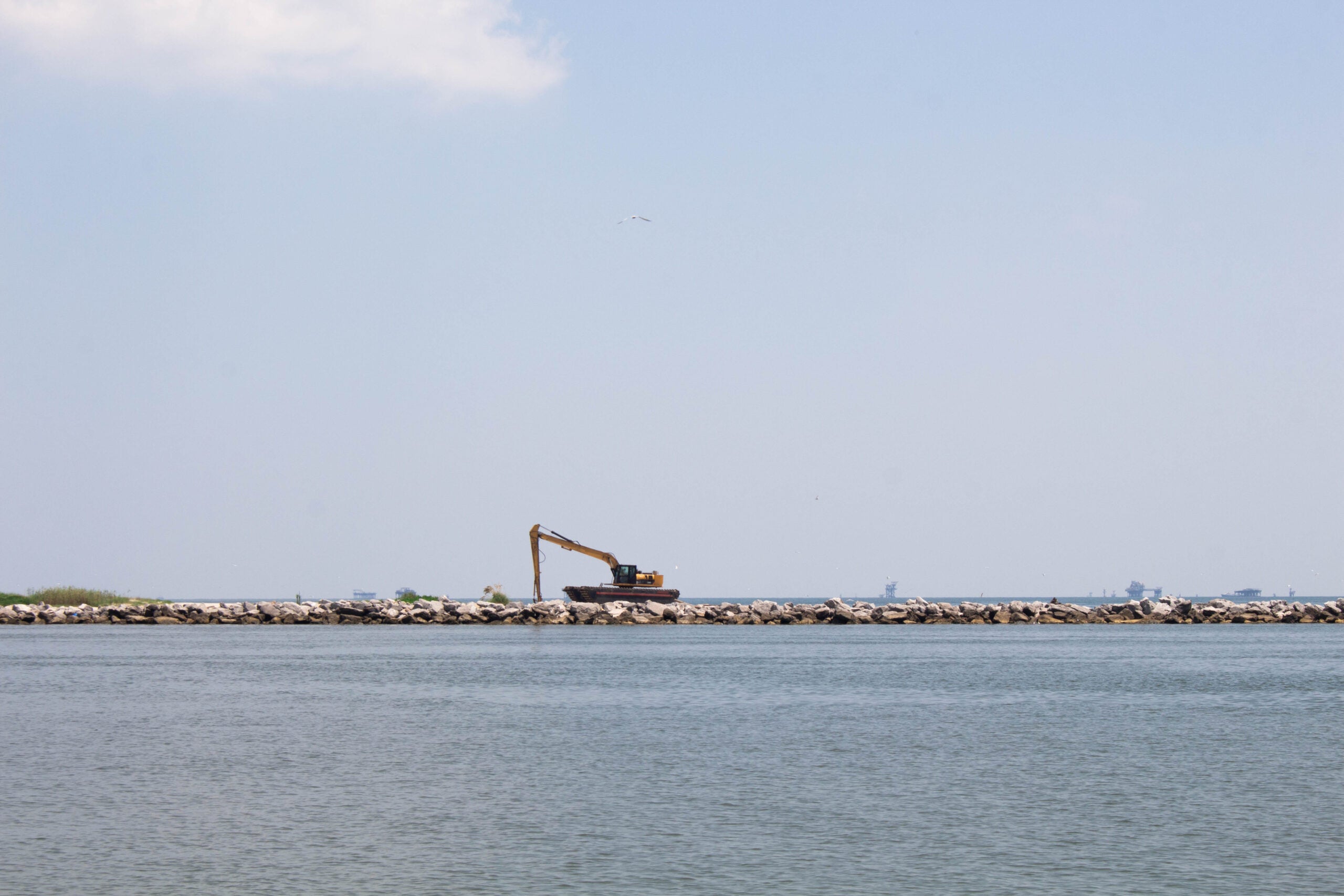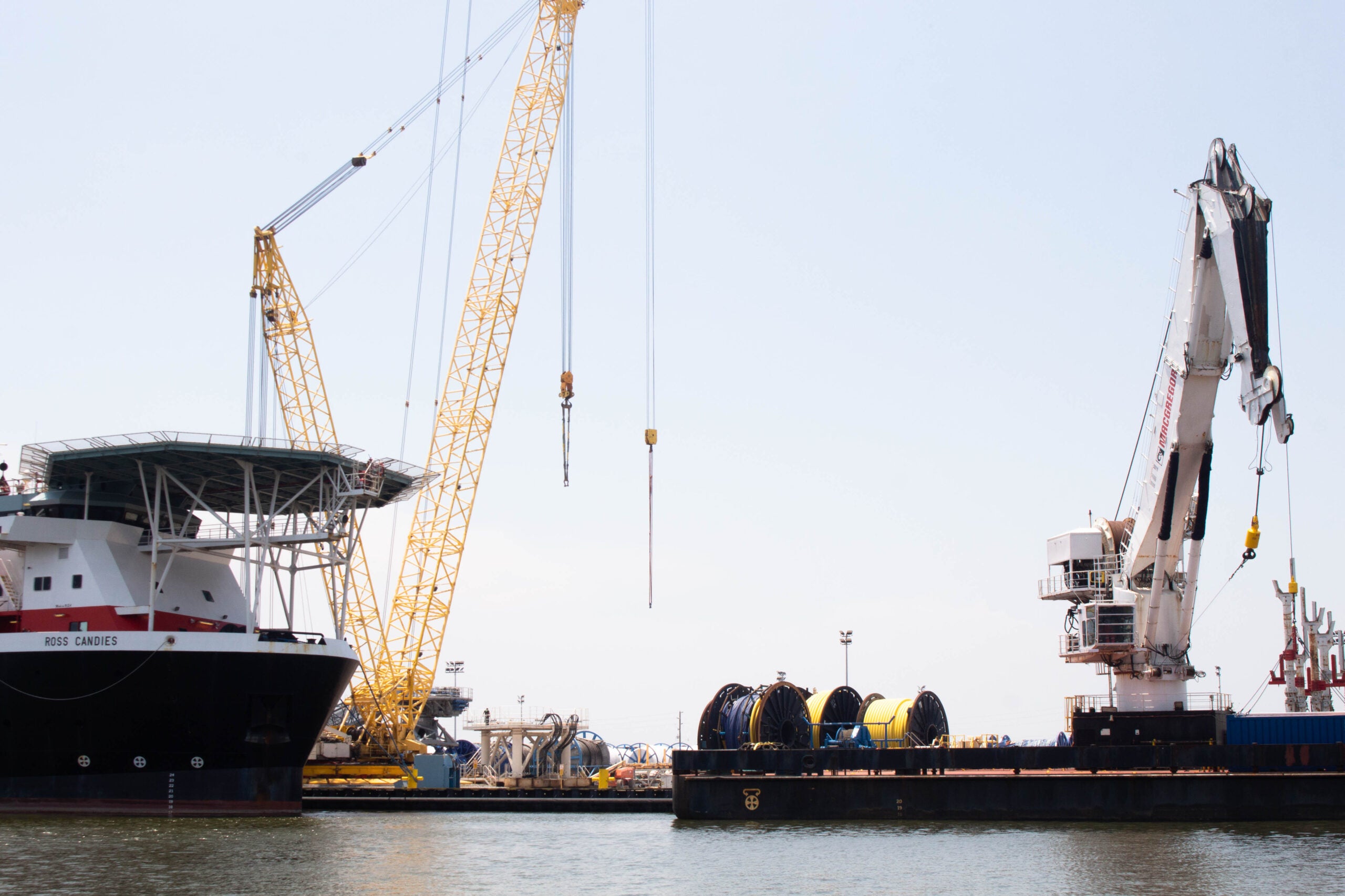Port Fourchon: The Economic Hub Looks to a Restorative Future
Situated at the end of Bayou Lafourche and the crux of Belle Pass lies one of the nation’s biggest industrial support operations, Port Fourchon. The port has existed since the 1960s and is a global hotspot for servicing offshore energy projects in the Gulf of Mexico. Port Fourchon services 95% of the actors that operate in the Gulf, including commercial fisheries, offshore oil and gas drilling, and autonomous sub-aquatic research vessels. Beyond their lease-holding responsibilities, the port has also committed to being stewards of their coastal property, modeling industry and environment coexisting successfully. At Restore the Mississippi River Delta, our mission is to advance an equitable, safer, and flourishing coast for Louisiana’s communities, ecosystems, and economy. Port Fourchon is one place where you can see the intersection of these entities, providing energy sources not only to our state but to the nation and beyond.
Governor Jimmy Davis signed Act #222 in 1960, which created the Greater Lafourche Port Commission. This Port Commission is unique in that members are elected, not appointed, distancing the port’s operations from political influence. After experiencing unprecedented growth throughout the 1980s and 1990s, the Port continued to purchase surrounding property and grew to the scale at which it operates today. The port’s proximity to the Gulf makes it appealing to offshore vessels, as it is the closest landmark to offshore energy sources, such as the LOOP (Louisiana Offshore Oil Port). The LOOP is the nation’s only offshore oil port, offering temporary storage for crude oil tankers that are too big for inland ports. The LOOP is crucial for transporting crude oil in the global market, as it is the primary receiver of imported and domestically produced oil.
Port Fourchon is also responsible for maintaining the surrounding wetlands to protect their property and their leaseholders’ assets. The port operates under the principle of ‘holistic resiliency,’ meaning they recognize the benefits of the ecosystem that protects their property and consider mitigation and restoration to maximize these benefits. The area is protected by its surrounding wetlands, which are the only buffer between the port and storm surge from the Gulf, making it in their best interest to maintain these ecosystems.
In 2020, the port celebrated not only its 60th anniversary but also the 1,000th acre of wetlands the port has created since the year 2000. Port Fourchon won the Environmental Enhancement Award from the American Association of Port Authorities for their beach and dune restoration work in 2018. In 2021, they opened a new 100-acre coastal wetland park to the public, which provides recreation and education opportunities for the surrounding community. These efforts required the Port to partner with state and federal agencies, local environmental groups, universities, and other industry partners. Port Fourchon is a member of the Partnership for Our Working Coast, an alliance of both environmental and industry partners. The port’s success in implementing these coastal restoration projects is a testament to the importance of industry working in collaboration with government and environmental groups to maintain environmental conditions that best serve the current market demand and protect the future of the area.
